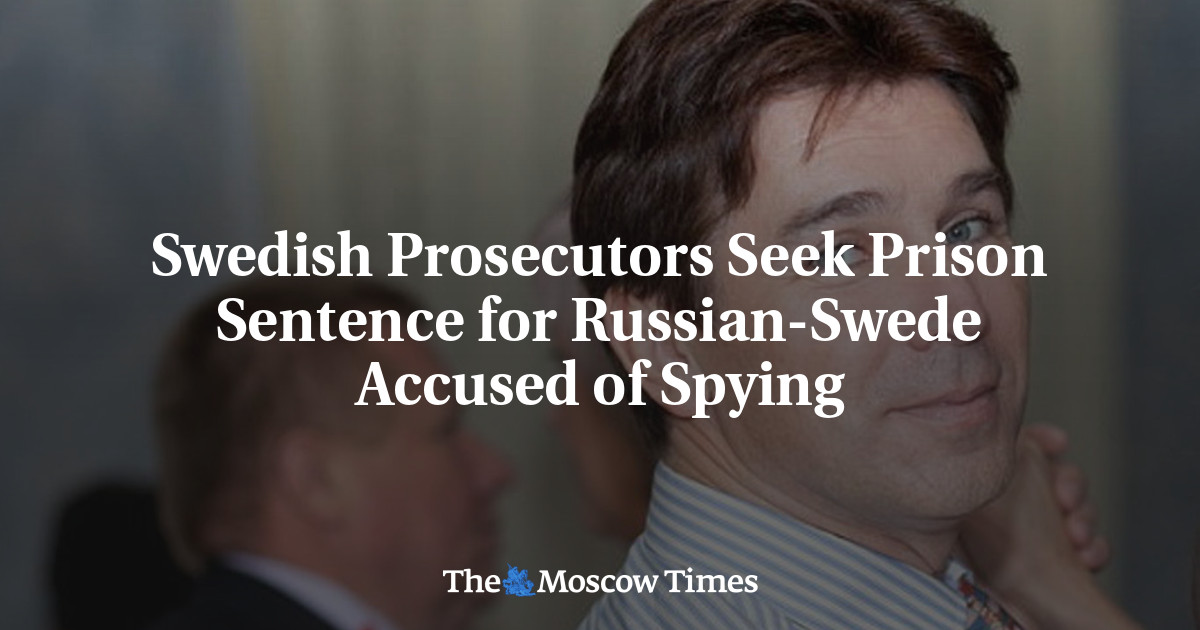
Swedish prosecutors on Thursday called for a Russian-Swede to be sentenced to up to five years in prison for allegedly passing Western technology to Russia’s military.
Sergei Skvortsov, who was arrested in a dramatic raid on his suburban Stockholm home in November 2022, has lived in Sweden since the 1990s where he has run import-export companies.
The 60-year-old was charged with two counts of “unlawful intelligence activities” against the United States and Sweden for over a decade until his arrest.
Prosecutors have argued that Skvortsov was part of a vast Russian organization built to acquire technology banned from being sent to Russia due to international sanctions.
According to experts quoted in Swedish media, the technology in question was mainly electronic devices that can be used, among other things, in nuclear weapons research.
Much of the trial has been held behind closed doors for reasons of national security.
“He is a procurement agent for the Russian military complex and its intelligence unit GRU,” prosecutor Henrik Olin told the Stockholm district court in his final arguments.
“Russia has a need for electronic technology. There is a Russian procurement system, and this system is run by the intelligence services, primarily the GRU,” he added.
Skvortsov, clad in a dark suit for Thursday’s court appearance, has insisted he is innocent.
He maintains that he is a legitimate businessman, who sought the proper authorization from Swedish authorities for his export activities.
But Olin argued the authorization was designed to “provide a veil of legitimacy” and that he used false names of business partners, omitted information about the types of products he exported and provided false information about the products’ end users.
Olin urged the court to hand down a sentence of between four-and-a-half and five years.
Sweden’s charge of “unlawful intelligence activities” is a notch lower than espionage.
Meanwhile, Skvortsov’s lawyer Ulrika Borg called for her client to be freed, arguing that the prosecution had failed to provide evidence that Skvortsov was a node in Russia’s illicit procurement system.
“He has testified that he is a businessman with a lot of contacts in many areas, ranging from vegetables to [Russia’s space agency] Roscosmos,” she said.
“Among all of these, the prosecution has chosen to pick out people that it claims are part of or connected to Russian intelligence, just because they may have lived on the same street,” Borg said.
The court has yet to announce a date for the verdict.